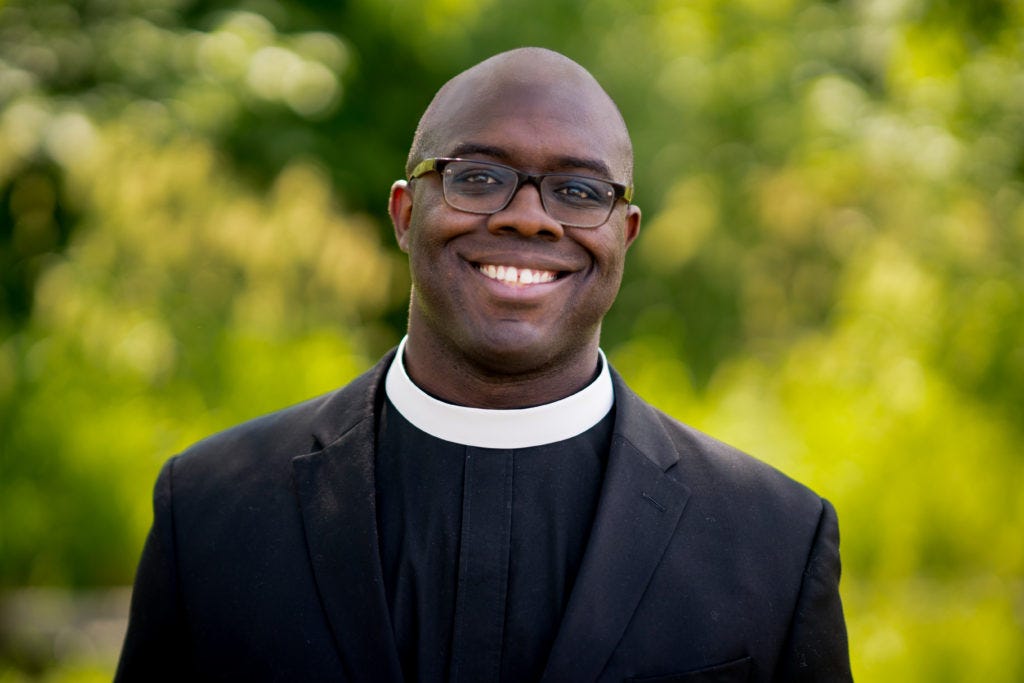Continuing my series of articles that highlight conservative authors in the New York Times, today’s opinion section had an essay by Esau McCaulley called, We Weren’t Happy Before the Pandemic. McCaulley is a Bible professor at Wheaton College — generally understood to be the bastion of evangelicalism (at least of the sort that defines itself less by politics than theology). He’s also an African American who wrote the book Reading While Black, which is a really insightful look at the difference race makes while interpreting Scripture. He and I had a good conversation about the book on the podcast I host, Language of God; episode 67, if you’re interested.
As I said last week, I still get the print edition delivered to my door each day. I don’t really understand how the economics of that works. I’m pretty sure in my very conservative Indiana town, there aren’t many people getting home delivery. But for about a dollar a day, someone brings one to my doorstep. At least most days. About six weeks ago there was a note included with the newspaper saying delivery was going to be sporadic. The previous delivery person (I don’t think they’re called a “paperboy” any more) had quit the job, and they were not able to find enough people for all their routes (I then understood that this company must be the delivery mechanism for multiple newspapers). I wondered if I’d capitulate to the 21st century and just use the digital version. But for the last couple of weeks we’re back up to 4 or 5 deliveries per week.
Interestingly, finding workers in fields like this is one of the points addressed by McCaulley in his article today. People during the pandemic realized that they could do something different than they had been doing. “The pandemic has led to one of the largest shifts in jobs in recent memory, with millions of Americans making changes.” In the part of the country where I live, every business is looking for workers. My wife and I stopped by a Chipotle last week, and then left without being served. It looked like they had two people working. Dishes and trash were stacked up everywhere. There was a prominently displayed Help Wanted sign. While leaving I said, “I’m afraid this is the the new normal for fast food” (or whatever Chipotle qualifies as).
The Republicans have been pretty sure that the worker shortage is because the government extended higher unemployment benefits. In their worldview it just makes sense (and therefore needs no data), that if you pay people enough to be unemployed, they won’t work. But that pesky data came out this week showing that states that cut employment benefits had no significant advantage over the states that kept those benefits. It turns out that people have discovered through the pandemic that there is more to life than a paycheck — particularly if it’s not a very good paycheck. Back to McCaulley:
“If there is a lesson in this for employers, it is to remember that employees are more than workers. We have an identity outside the hours committed to making a living. Jobs that treat their employees honorably, provide flexibility and leave room for life outside work will thrive.”
I wonder how the newspaper delivery service will handle this. Every morning I look out my front door to see whether they have found someone willing to bring my paper that day. There’s not a lot of flexibility there, and I can’t image the job pays very well. Maybe that service I’ve gotten used to is no longer viable in today’s economy and expectations from our jobs. I don’t see how print newspaper delivery could be “remote-optional.”
McCaulley’s overall point was that it took the pandemic for us to see some things about our lives more clearly. We realized that patterns of our lives were not conducive to the good life. His title, “We Weren’t Happy Before the Pandemic” captures this pretty well. But interestingly, the online edition of his essay has a slightly different title, “We Weren’t Happy Before the Pandemic, Either.” Curious. Authors don’t usually get to pick their titles, and evidently there is a different editor in charge of such things for the online and print editions. That “Either” gives it a much darker tone, like employers won’t ever learn the lesson McCaulley pointed out.
Or at least the difference in titles makes me think it is a good decision to keep getting the print edition! Who’s willing to take the job of bringing me my NYT by 7am every day? Anyone?



